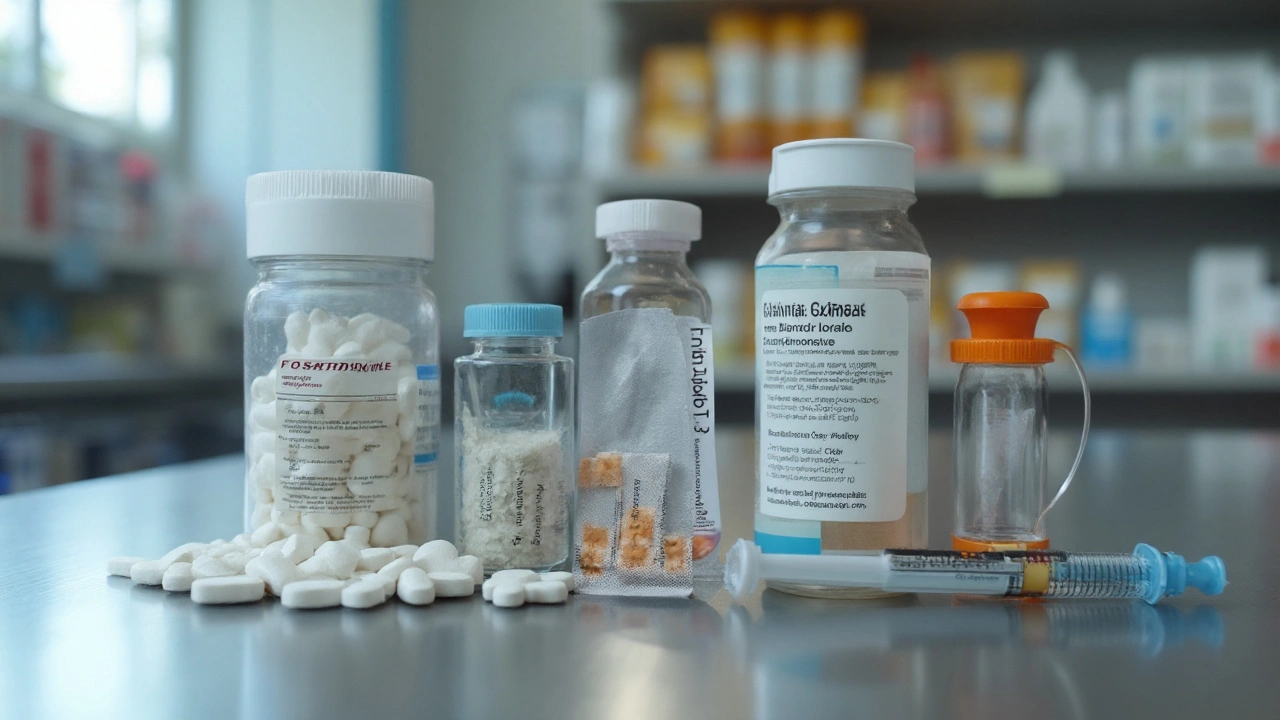A clear side‑by‑side look at Fosamax and its main alternatives, covering how they work, dosing, safety and who should use each option.
MoreBone Health: How to Keep Your Bones Strong and Healthy
Bone health is something we often overlook until there’s a problem like pain or a fracture. But the good news is that keeping your bones strong doesn’t have to be complicated. It starts with simple everyday choices, from what you eat to how often you move.
First off, calcium is a bone's best friend. Your bones need calcium to stay dense and strong. Dairy products like milk and yogurt are well-known sources, but you can also find calcium in leafy greens like kale, broccoli, and fortified foods such as orange juice or cereals. Adults generally need about 1,000 mg of calcium each day, but this increases as you get older.
Don’t forget about vitamin D, which helps your body absorb calcium. Without enough vitamin D, even eating plenty of calcium won’t build strong bones. Sunlight is your best natural source—about 10 to 15 minutes of sun exposure a few times a week can do the trick. If you live in a place with little sun, supplements might help, but it’s smart to talk with a healthcare provider first.
Exercise: Your Bones’ Secret Weapon
Physical activity isn’t just good for your heart and muscles—it’s great for your bones too. Weight-bearing exercises like walking, jogging, or dancing put gentle stress on your bones. This encourages them to stay dense and strong. Even strength training with weights or resistance bands can improve your bone health, helping prevent conditions like osteoporosis later on.
Other Lifestyle Factors That Matter
Smoking and heavy drinking can harm your bones, making them weaker over time. Cutting back or quitting these habits can make a big difference. Also, if you take medications or have health issues that affect bone health, it’s important to discuss these with your doctor. Some medications can interfere with bone density, so awareness and monitoring are key.
Last but not least, beware of falling. For older adults especially, falls can lead to serious bone fractures. Simple fixes like removing tripping hazards at home, using non-slip mats, and keeping your vision checked can lower the risk.
Bone health isn’t about a quick fix—it’s a lifelong commitment to smart habits. By focusing on nutrition, staying active, and making safe lifestyle choices, you can keep your bones strong and support your well-being for years to come.
Fosamax is commonly used to prevent and treat osteoporosis, especially in postmenopausal women and older adults. This article explores how Fosamax works, real-life tips for safer use, the latest facts on side effects, and important guidance for anyone considering or currently taking this popular bone-strengthening drug. Learn what to watch for, when to seek help, and practical ways to make the most of your treatment.
MoreDiscover how Paget's disease, a chronic bone disorder, intertwines with arthritis, contributing to joint pain and bone complications. This article explores the symptoms, causes, and management strategies for coexisting conditions, providing insights for better health outcomes. Readers will find practical tips for living with these ailments, making daily life a bit easier. Learn about the impact on bone structure and why timely medical attention matters.
More


